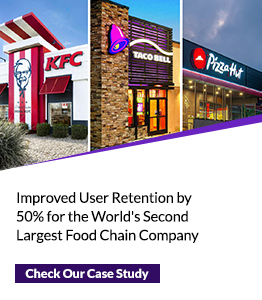Untapped Potential Areas of Open Banking – All You Need to Know

Over the past few years, there has been a significant shift in the financial industry with the introduction of Open Banking. This innovative concept has paved the way for secure data sharing between financial institutions and third-party providers, fostering collaboration and driving fintech advancements.
Open Banking has opened vast opportunities in the financial sector, enabling customers to gain greater control over their data and empowering businesses to create personalized and innovative financial services. In this blog, we will explore the untapped potential areas of Open Banking and the immense opportunities it brings to the market.
What is Open Banking?
Open banking is a financial innovation that enables customers to securely and electronically share their financial data with authorized third-party providers. Banks and other financial institutions can now allow third-party providers access to their data and application programming interfaces (APIs). This enables customers to access a broader range of financial services from different institutions, all within a single integrated platform or app.
The Open Banking market has experienced rapid growth since its inception. According to market research reports, the Open Banking market size was valued at billions of dollars in recent years, with projections showing exponential growth in the coming years. This growth can be attributed to the rise in popularity of digital banking solutions as well as the growing demand from customers for personalized services. Additionally, the integration of advanced technologies such as artificial intelligence and machine learning in financial services has also played a significant role.
What are the Untapped Potential Areas of Open Banking?
1. Financial Inclusion
One of the most promising potentials of Open Banking lies in its ability to promote financial inclusion. By granting access to financial data, Open Banking can help underbanked and underserved populations gain access to financial services they were previously excluded from. Fintech companies can leverage this data to create innovative products that cater to specific needs, such as microloans for small businesses and credit-building solutions for individuals with limited credit histories.
2. Digital Wallets
Open banking can integrate with digital wallets to provide a seamless and unified financial management platform. By incorporating various financial services and accounts into a single digital wallet, users can access banking, investments, budgeting, and loyalty programs, enhancing convenience and financial control.
3. Credit Scoring and Risk Assessment
Open banking offers access to financial data, allowing for more accurate and dynamic credit scoring models. By analyzing real-time transaction data, lenders can assess a borrower’s creditworthiness better, especially for individuals with limited credit histories, thus increasing financial inclusion and reducing risk in lending.
4. SME (Small and Medium Enterprises) Empowerment
Open Banking can revolutionize how small and medium enterprises manage their finances. By integrating their banking data with accounting and financial management software, businesses can gain real-time insights into their cash flow, expenses, and financial health. This streamlines financial processes and enables SMEs to make data-driven decisions and access capital more efficiently.
5. Fraud Prevention and Security
While Open Banking raises concerns about data security, it also offers the potential to improve fraud prevention measures. Through secure data sharing and advanced authentication methods, banks can collaborate with fintech companies to develop robust fraud detection algorithms. The collective intelligence of multiple parties can significantly enhance fraud prevention systems, providing customers with peace of mind and safeguarding their financial assets.
6. Wealth Management and Investment Solutions
Open Banking unlocks a plethora of opportunities in the wealth management and investment sectors. By aggregating data from multiple accounts, financial institutions can offer comprehensive investment portfolios tailored to individual risk appetites and financial goals. Additionally, robo-advisors powered by artificial intelligence can analyze market trends and provide personalized investment advice, making wealth management more accessible to a broader audience.
7. Open Insurance
Building on the success of Open Banking, the concept can be extended to the insurance sector, leading to Open Insurance. This would enable insurers to access customer data securely and offer personalized insurance plans based on actual risk profiles. It could result in fairer customer premiums and more efficient claims processing, fostering greater trust and transparency in the insurance industry.
8. Real-Time Payments
Open banking APIs offer a promising means to facilitate real-time payments, surpassing the speed and convenience of traditional payment methods. This transformative capability has the power to revolutionize the entire payments industry, delivering substantial benefits to businesses and consumers alike. Noteworthy advantages can be witnessed in enhanced financial inclusion, streamlined cross-border payments, and innovative payment solutions.
A recent survey reveals promising prospects for the global real-time payments market. Projections indicate a remarkable compound annual growth rate (CAGR) of 30.6% from 2020 to 2025, ultimately leading to an impressive market size of $55.9 billion by the end of the forecast period.
Conclusion
Open Banking has ushered in a new era of collaboration, innovation, and customer-centricity in the financial sector. The untapped potential areas of Open Banking present a wealth of opportunities for financial institutions, fintech companies, and customers alike. From providing enhanced customer experiences and driving financial inclusion to revolutionizing wealth management and insurance, Open Banking is reshaping the way we interact with money.
Our team of experts at ImpactQA specializes in providing cutting-edge testing solutions that can safeguard your systems against potential vulnerabilities and breaches. We understand the unique challenges of the financial sector and tailor our testing strategies to protect customers’ data and meet their specific requirements, ensuring your applications comply with industry standards and regulations.





